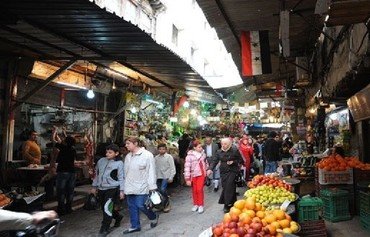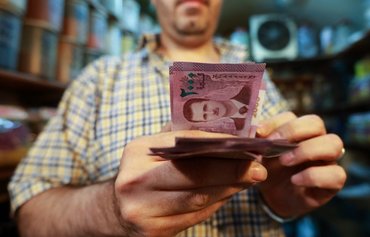Prices of all goods have risen in markets in areas under Syrian regime control, even as the regime claims it has prices under control, an economist said.
The steep rise in prices comes as the Syrian pound is experiencing a historic collapse in its exchange rate against the US dollar and other foreign currencies, Syrian economist Mahmoud Mustafa told Diyaruna.
The rate of exchange with the US dollar has exceeded 1,800 Syrian pounds, he said, and is expected to reach 2,000 pounds.
This has driven up the price of all goods in commercial markets in regime-controlled areas, he said, and of food, vegetables and fruits in particular.
The surge in prices began some time ago and peaked at the start of the holy month of Ramadan, when some kinds of vegetables and fruits began to be sold at four times their original price, he said.
High-demand items such as meat and certain kinds of poultry also commanded exceptionally high prices, Mustafa said.
Instead of addressing the problem, "the Syrian Ministry of Economy and Trade has only offered data that refutes the rise in prices", he noted.
The ministry claims it is conducting inspection patrols in order to control prices, he added, but in reality this does not appear to be happening.
There is a notable shortage of some items, such as bread, due to the scarcity of flour, with long lines forming at bakeries in all regime-controlled areas, he said.
Mustafa said one of the reasons for the high prices is the spread of novel coronavirus (COVID-19) in Syria, but there are many others.
These include the economic crisis the Syrian regime is facing, as evidenced by a power-struggle driven by money shortages within the ruling clique, he said.
They also include the inability of the regime's institutions to control the markets, and the hegemony of merchants loyal to the regime, he added.
Another major factor is that regime officers and regime-affiliated militias have been claiming a share of the proceeds for themselves in some marketplaces, by imposing tributes on local merchants, he said.

![Street markets in areas controlled by the Syrian regime have seen a significant increase in prices, a Syrian economist says. [Photo courtesy of Iqtisad]](/cnmi_di/images/2020/05/19/24124-Syria-street-market-600_384.jpg)






